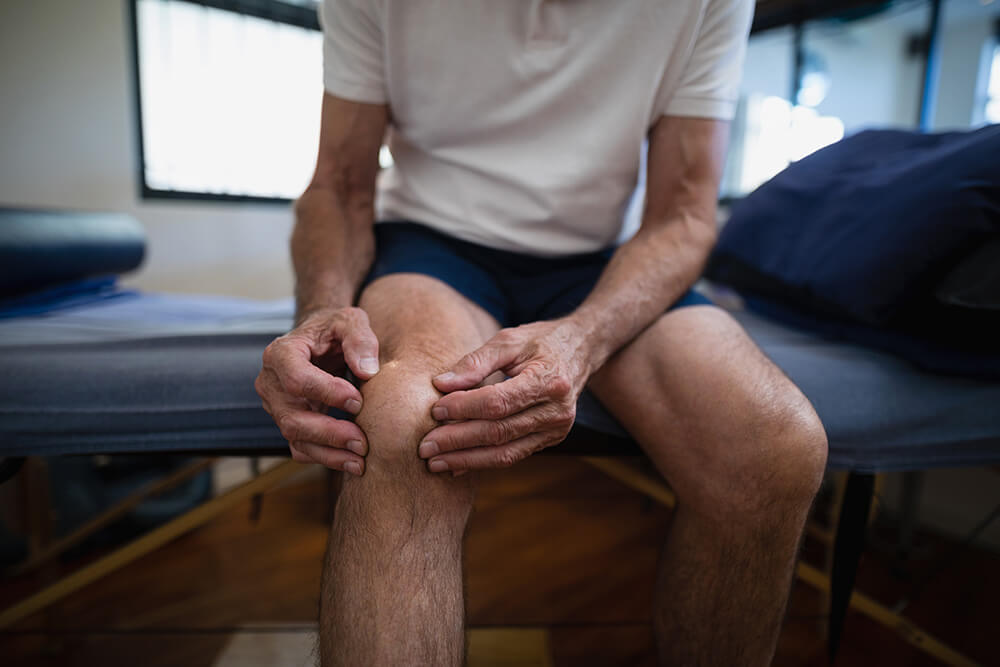ACL surgery is a common procedure for knee injuries. After all, the knee joint is prone to injury, especially if you play high-impact sports. Your ACL, or anterior cruciate ligament, is the tissue around the knee that connects your thighbone to your shinbone. If you tear your ACL through sudden motion, you will need treatment. Depending on how severe your injury is, you might even need surgery followed by rehabilitation.
Even with rehab, though, people often experience knee popping after an ACL surgery. This normal recovery symptom can be concerning for patients. It may feel as though the injury has happened again, since ACL tears often come with a loud popping noise and sensation. As you recover from surgery, it is important to address any symptoms for proper recovery. Proper care can also help you prevent future complications.
Causes of knee popping after ACL surgery
- Scar tissue — During the early stages of your recovery, scar tissue will begin to form around your knee. This tissue is sensitive and prone to further injury after ACL surgery. The feeling of your knee popping may actually be happening in your new scar tissue.
- Weak muscles — After surgery, it takes a lot of time and rehabilitation to get back to full strength. Your muscles will likely feel weaker than usual after ACL surgery. Knee popping can be caused by instability from weak knee muscles. Unequal strength in the muscles around your knee can also cause imbalance and lead to knee popping.
- Physical activity — Physical therapists will often recommend you stay away from physically intensive activities while you recover. If you participate in these activities, you can put stress on the knee that may cause popping. Poor technique in rehabilitation exercises can also add stress to the knee. Consult with your physical therapist if you feel that your exercises are causing knee popping.
Physical therapy techniques to address knee popping after ACL surgery
Physical therapy can come with many benefits: Improved mobility, reduced pain and lessened inflammation are just a few ways physical therapy can help you. Though a good physical therapist will create a personalized routine for you after a free screening, here are some PT techniques you can expect:
- Strengthening exercises — Strengthening your muscles again after ACL surgery can address knee popping. This is because improved strength also improves stability and balance. Targeted exercises can help strengthen muscle in the right places to alleviate symptoms.
- Stretching — Stretching is done to improve flexibility. This can help you get your knee’s range of motion back. It can also reduce tension in the knee, which may help reduce knee popping.
- Manual therapy — In manual therapy, your physical therapist manipulates your tissue to alleviate pain and stiffness. This hands-on approach can enhance your health and help with knee popping.
- Gait retraining — By improving the way you walk after surgery, you can learn to put less stress on your knee. This is good for minimizing lasting scar tissue. Reduced stress can also mean less knee popping.
While all of these techniques can help address knee popping after ACL surgery, there’s more to physical therapy. Everyone has a different set of circumstances, so you should receive unique care to meet your needs. To find a good recovery path, you should know how to get the most out of physical therapy.
Tips for a successful physical therapy experience
- Find a qualified physical therapy practice — Look for a practice that offers specialized care for your symptoms. Some physical therapy clinics provide post-surgical rehab that can help you recover after your ACL surgery.
- Communicate openly — To get the best treatment, describe your symptoms as accurately as possible when speaking with your physical therapist. Open communication leads to more accurate diagnosis, leading to a treatment plan that can fit your specific needs.
- Be consistent — Physical therapy relies on your participation. Knee popping after ACL surgery can be reduced by your guided efforts. Make sure to attend all sessions with your physical therapist, and always follow through on at-home exercises.
Peak Performance Sports and Physical Therapy can address knee popping after ACL surgery
Want to know if physical therapy is right for you? Our physical therapy specialists can discuss treatment options and help find a solution for your knee popping. Recovery from ACL surgery takes time and patience. Our dedicated specialists can make the ACL surgery recovery process easier. With their support and care, you can work to regain your strength, flexibility, and mobility in your knee.
Contact us today for more information on how we can help with your surgery rehab or to schedule an initial appointment.

